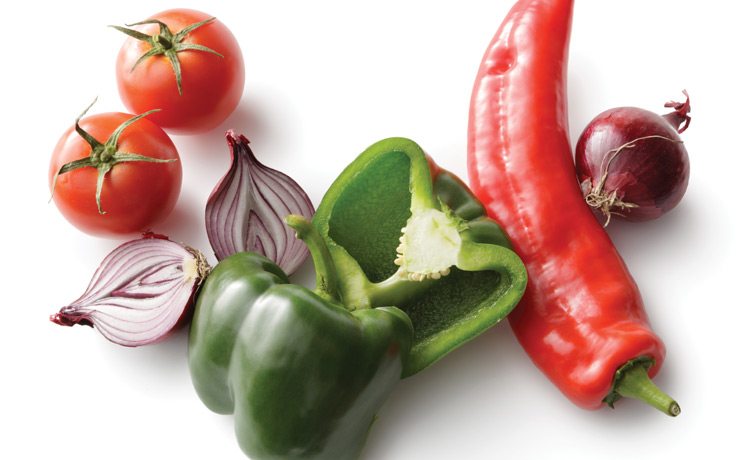The Department of Agriculture at Southeast Missouri State University has been awarded a $15,741 Organic Fertilizer and Soil Health Management for Specialty Crops grant from the Missouri Department of Agriculture to evaluate polysulfate as an organic fertilizer for selected early-season and full-season vegetables and as a soil conditioner to improve soil health.
The Southeast initiative is one of 12 projects across Missouri receiving grant funding by the USDA’s Specialty Crop Block Grant program. In total, Missouri received more than $374,000 to enhance the competitiveness of specialty crops, defined as fruits, vegetables, tree nuts, dried fruits, horticulture and nursery crops, including floriculture.
Grant recipients were selected through a competitive process. Projects awarded funding focus on increasing sales of “Missouri Grown” specialty crops, says Dr. Mike Aide, professor of agriculture at Southeast.
Polysulfate is an emerging fertilizer suitable for organic row crop and cover crop usage. The study will evaluate its effectiveness both with and without cover crops on several key vegetables, including sweet corn and various legumes.
“Our collective hope is to create a completely sustainable vegetable production system that supports soil enrichment and producer profitability,” Aide says. “We also hope to advance small acreage entrepreneurship understanding using the extension outreach of our partners.”
The three-year project, which began last summer, will continue during the 2018 and 2019 growing seasons in collaboration with Lincoln University Cooperative Extension (LUCE) and the University of Missouri Extension.
Aide says the Southeast Department of Agriculture along with its partners are pleased to be able to help small acreage producers attain the largest profit potential for their operations. The goal of the project is to estimate the efficiency of cover crops with and without polysulfate amendment as an emerging soil health best management system for organic crop rotations.
Cover crops are unharvested crops managed as part of a planned rotation to provide increased soil organic matter content; reduced soil erosion; better soil water retention; reduced soil compaction; and more robust soil microorganism communities, Aide says.
Polysulfate’s natural content of macronutrients, in addition to potassium and sulfur, make it unique, Aide says. It is available as both a granular and powder product, making it excellent for spreading and ideal as an organic fertilizer to apply alongside organic nitrogen sources.
Using polysulfate as a soil conditioner and as an organic fertilizer, along with cover crop placement is considered a best practice to rebuild soil structure, increase the soil’s organic content and enhance yield. This is preferred over tillage which is frequently used in organic production to avoid herbicide application while maintaining low level weed competition, he says.
Ultimately, Southeast hopes to support LUCE and the University of Missouri Extension in its outreach mission and create sustainable farming practices by evaluating emerging organic fertilizers and promoting soil health practices, Aide says.
“This project is tailored to small acreage crop producers,” he says, adding that as part of the research project, Southeast plans to organize a small acreage field day at the David M. Barton Agriculture Research Center and the Charles Nemanick Alternative Agriculture Gardens in fall 2018 and fall 2019.
“The development of a unified soil health initiative with an organic fertilizer to support potassium uptake will benefit all organic producers, all non-organic producers and all producers and individuals who desire to increase soil fertility and soil health in a sustainable framework,” Aide says.
Source: Southeast Missouri State Univeristy











